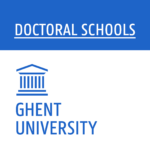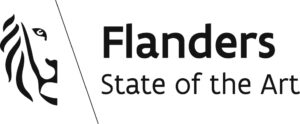This course will take place on campus Mercator on June 6th and 7th 2024. It aims at presenting recent findings from gender and language research in multiple European languages and across disciplines, with a special focus on (but not limited to) gender-inclusive and nonbinary pronouns. In doing so, the course will cover a variety of approaches and methodologies from different disciplines, including psycholinguistics, corpus linguistics, sociolinguistics, and linguistic ethnography
With the support of the Flemish Government.
Schedule
Thursday 6th
9:00 Registration & welcome
9:30 Lecture by Pascal Gygax
10:30 Coffee break
10:50 Presentation by Tiziana Jäggi
11:20 Ten minute break
11:30 Presentation by Laura Robaey
12:00 Presentation by Hanne Verhaegen
12:30 Lunch break
14:00 Lecture by Evelyn Ferstl
15:00 Coffee break
15:20 Presentation by Chloé Vincent
15:50 Presentation by Hielke Vriesendorp
16:20 Ten minute break
16:30 Presentation by Beth Hanley
17:00 End
Friday 7th
Please contact Hanne Verhaegen or Chloé Vincent for more informations.
Programme: Lectures
Inclusive Language in 10 Questions
Pascal Gygax (Université de Fribourg)
Inclusive language is a linguistic approach that aims to avoid bias based on factors such as gender. Efforts to implement inclusive language face potential challenges, with the grammaticalization of referential gender being a key variable for the extent of linguistic creativity needed to overcome biased language. This presentation will explore the topic by posing 10 questions and using French and Norwegian (bokmål) as examples to illustrate linguistic practices. Comprehension studies designed to evaluate linguistic alternatives from a psycholinguistic and social psychological perspective will be presented and discussed for both languages.
Pascal Gygax is professor in Experimental Psycholinguistics and Cognitive Psychology. He is the head of the Psycholinguistics and Applied Social Psychology (PPSA) Group at the University of Fribourg and co-founder of the Gender Representation in Language (GREL) Research group. Together, Gygax and Gabriel have received 9 grants, supervised 5 PhD students, and was involved in a Marie-Curie network on the topic (e.g. Gygax et al. 2008, Gygax et al. 2012, Zufferey & Gygax 2023).
When do surgeons become mothers? The time course of the gender mismatch effect in German
Evelyn Ferstl (Universität Freiburg)
In gendered languages such as German, the question of whether grammatically masculine role nouns are more likely to be interpreted to refer to men (specific use) than to people of any gender (generic use) has spurred considerable debate. Everyone agrees that context is taken into account eventually and that the conventional use of the generic masculine is reflected in language comprehension. At the same time, plenty of psycholinguistic studies have documented gender mismatch effects as evidence for a male bias. In this talk I will focus on the time course of gendered interpretations and present the results of experimental studies using time-sensitive methods, such as eye-movement monitoring.
Evelyn Ferstl is professor for Cognitive Science and Gender Studies at the Albert-Ludwigs-University Freiburg. She currently supervises a research project funded by the German Research Foundation (DFG), entitled ‘Gender related practices in person reference: Discourse, grammar, cognition’ (e.g. Ferstl et al. 2008, Ferstl 2018, Zacharski & Ferstl 2023)
Programme: Presentations
Non-binary pronoun use in German and importance for one’s own identity and recap of current projects
Tiziana Jäggi (Université de Fribourg)
Current research suggests that non-binary pronoun use can be important to non-binary individuals for self-identification and to avoid being misgendered. In German, no gender-neutral or non-binary pronoun has been promoted so far by any official language organ, which leaves a linguistic gap. From this gap emerge creative linguistic solutions mainly from non-binary individuals themselves. However, these solutions have not yet been investigated systematically. This qualitative exploration sheds light on the different approaches that German-speaking non-binary individuals in Switzerland take regarding non-binary pronoun use. Further, we are interested in how these linguistic forms tie to a person’s gender identity. We will present preliminary evidence of the ongoing qualitative investigation and shed light on the link between non-binary pronouns and their importance for one’s own identity. Further, we will present our progress on other WEAVE-related projects.
Gender-fair language in interpreting: a pragmatic-interactional approach
Laura Robaey (Universiteit Gent)
“Research within the field of gender-fair language in multilingual contexts has until now mainly focused on translating gender in literary works and gender-inclusive language in machine translation. However, research on interpreting gender-fair language, focussing on gender beyond the binary, is still scarce. This is remarkable, considering the rising visibility and recognition of the LGBTQIA+ community and the fact that gender-diverse foreign-language persons rely on linguistic support, such as an interpreter, to express themselves across the language barrier in accordance with their gender identity. Moreover, there are challenges for the interpreter in using the right linguistic tools in the source and target language in order to shape the (linguistic) identity of the person in question.
The aim of this study is to explore both linguistically and pragmatically to what extent and with what motivation student interpreters use gender-fair language in multilingual interactions.
To this end, practice sessions for interpreting students are organised in which students interpret a medical role-play between a service provider and a non-binary person. The interpreted conversations are audio-visually recorded and subjected to a multimodal analysis, with particular attention to the (non-)use of gender-fair language, awareness of this issue and the possible impact on the dynamics of the conversation. Concepts of interactional pragmatics are used to explore explanations for interpreters’ linguistic and interactional choices in the interpreting process. ”
Comprehensibility and appreciation of Dutch gender-neutral pronouns hen and die
Hanne Verhaegen (Universiteit Gent)
In Dutch, as in other languages, there has been a growing demand for gender-inclusive language. This demand has led to the emergence and promotion of gender-neutral pronouns, most notably the forms hen and die. While initially proposed for specific reference to non-binary individuals, these pronouns may also be useful for generic reference, i.e. reference irrespective of the antecedent’s gender. In the talk, I present findings from three experimental investigations into the comprehensibility and appreciation of both the specific non-binary and the generic use of Dutch gender-neutral pronouns hen and die.
Comprehensibility and appreciation of gender-neutral pronouns in French
Chloé Vincent (Universiteit Gent)
In recent years, gender neutral pronouns have been introduced in French as a way to be more inclusive towards all genders. This introduction has been criticized for impacting negatively text quality. In this talk I will present preliminary results of an online experiment examining the comprehensibility and appreciation of two gender-neutral pronouns in French: iel and al.
Combining macro, meso and micro approaches to queer linguistics: mapping non-binary pronoun usage in Netherlandic Dutch.
Hielke Vriesendorp (Universiteit Utrecht)
Most recent work on queer language variation makes use of case studies (Jones, 2021) in order to avoid the impression that queer identities and practices are more homogeneous than they are. This is for good reason, often the essentialisation of marginalised queer speakers causes harm, for example through stereotyping and the erasure of non-dominant perspectives. This raises the question if it is possible to conduct variationist queer linguistic research beyond the case study. The current paper explores this by presenting data from a study on non-binary pronoun usage among trans-inclusive speakers of Dutch. It argues that its macro findings may be helpful for liberation purposes (e.g. legitimising non-binary pronouns), its meso findings allow for more nuanced generalisations of queer speech beyond case studies (e.g. forms of die are used more often by speakers in queer social circles), and its micro findings allow for non-dominant perspectives to be recognised alongside the larger patters which were found (e.g. some non-binary participants did not use the dominant forms die or hen).
Simultaneously inclusive? A corpus analysis of gender-inclusive language use by simultaneous interpreters working from English to French at the European Parliament (2019-20)
Beth Hanley (ULB)
“As far as interpreting is concerned, Parliament’s services are fully committed to using gender-neutral language”, asserts the European Parliament’s gender-inclusive language (GIL) guidelines published in 2018. Is the existence of such a guide by such a prolific international institution indicative of a shift towards a more general usage by conference interpreters in institutional settings? GIL guidelines have been published by multiple international organisations that employ conference interpreters, from the European Union institutions and NATO to the United Nations and Amnesty International. On paper, therefore, it could be argued that GIL has indeed entered the mainstream from its traditionally more confined usage in LGBT+, feminist and activist circles. Yet, it remains to be seen how the hypothetical commitment by the interpreting service at the European Parliament to use gender-neutral language transpires in reality, particularly when taking into account the unique complexities of conference interpreting posed by its associated extreme cognitive load, particularly in the simultaneous mode. Through a post-structuralist lens, this presentation will discuss the findings of a corpus analysis of simultaneous interpreters working from English to French at the European Parliament, comparing real language use to the parliament’s own GIL guide, while also offering a critique of existing guidelines concerning their true gender-inclusivity and lack of tailoring to a simultaneous interpreting context. The presentation aims to demonstrate the extent to which conference interpreters already use GIL and the contexts in which it is most recurrent. For instance, whether GIL use corresponds to the original speaker’s political views or the speed and complexity of the original speech. It will then be outlined how GIL could feature as part of interpreters’ preparation in a way that would limit the overburdening of their cognitive load when using GIL in simultaneous interpreting.
Registrations
Registrations are now closed.
If you have any questions, contact Hanne Verhaegen or Chloé Vincent

